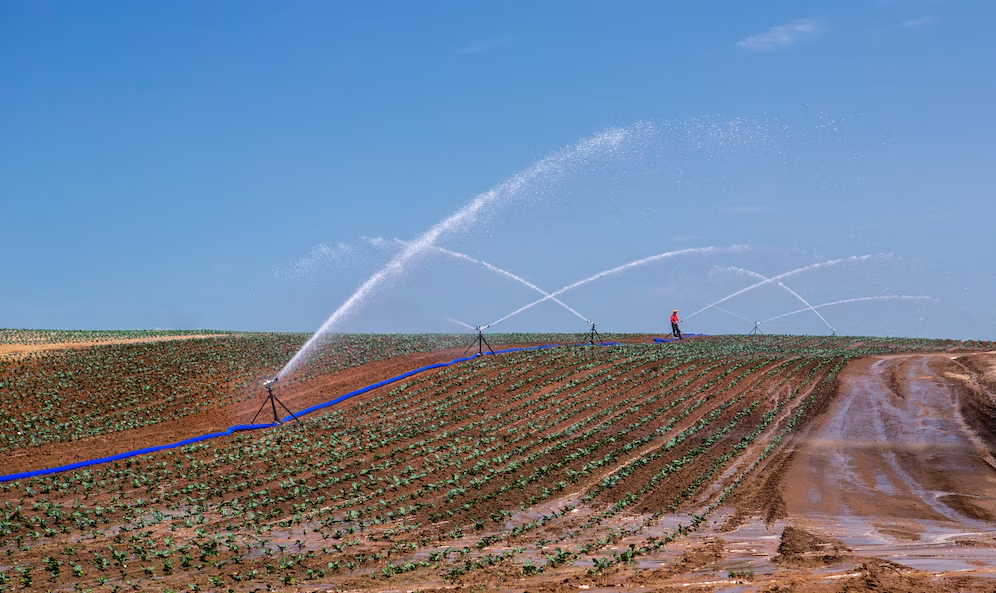Water-saving irrigation methods Telangana,Water scarcity is one of the most pressing issues in agriculture today, especially in regions like Telangana, where rainfall can be unpredictable. For farmers, adopting water-saving irrigation methods is essential for sustainable crop production and efficient resource management. Here are some effective techniques that have proven to save water and enhance agricultural productivity.
Top Water-saving irrigation methods
1. Drip Irrigation: The Gold Standard for Water Efficiency
Drip irrigation delivers water directly to the roots of plants through a network of pipes and emitters, ensuring minimal wastage.
- Advantages:
- Reduces water loss through evaporation.
- Prevents weed growth as water is targeted to the plant’s root zone.
- Increases crop yield with precise watering.
- Crops Benefited: Suitable for horticultural crops like tomatoes, chillies, and pomegranates.
- Government Support: Telangana offers subsidies on drip irrigation systems under the Pradhan Mantri Krishi Sinchayee Yojana (PMKSY).
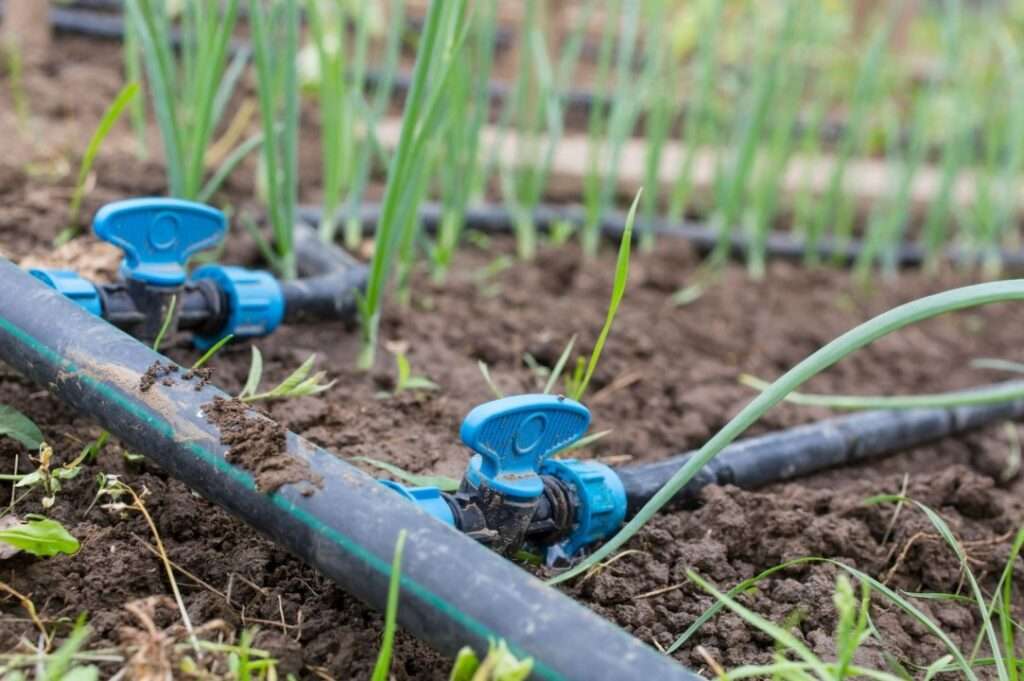
2. Sprinkler Irrigation: Covering Large Areas Efficiently
Sprinkler systems spray water evenly across fields, mimicking natural rainfall.
- Advantages:
- Covers a large area, ideal for crops like wheat and pulses.
- Reduces labor costs compared to manual watering.
- Water Usage: Controlled flow rates minimize overwatering.
- Implementation: Widely used in areas like Mahabubnagar and Karimnagar.
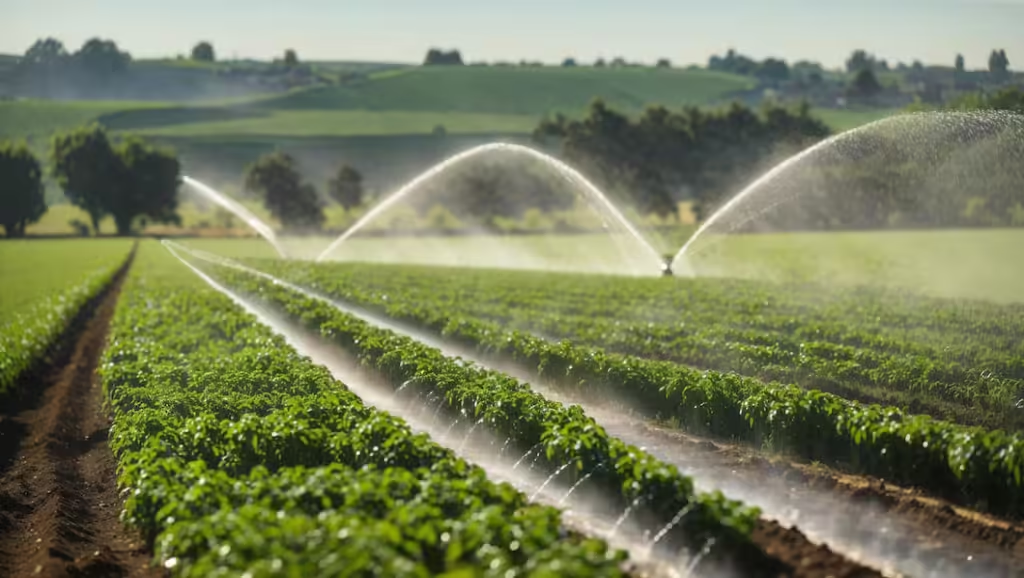
3. Rainwater Harvesting: Utilizing Natural Resources
Rainwater harvesting systems collect and store rainwater for irrigation use during dry periods.
- Benefits:
- Recharges groundwater levels.
- Provides an alternative water source during droughts.
- Techniques: Farm ponds, percolation tanks, and check dams are popular in Telangana.
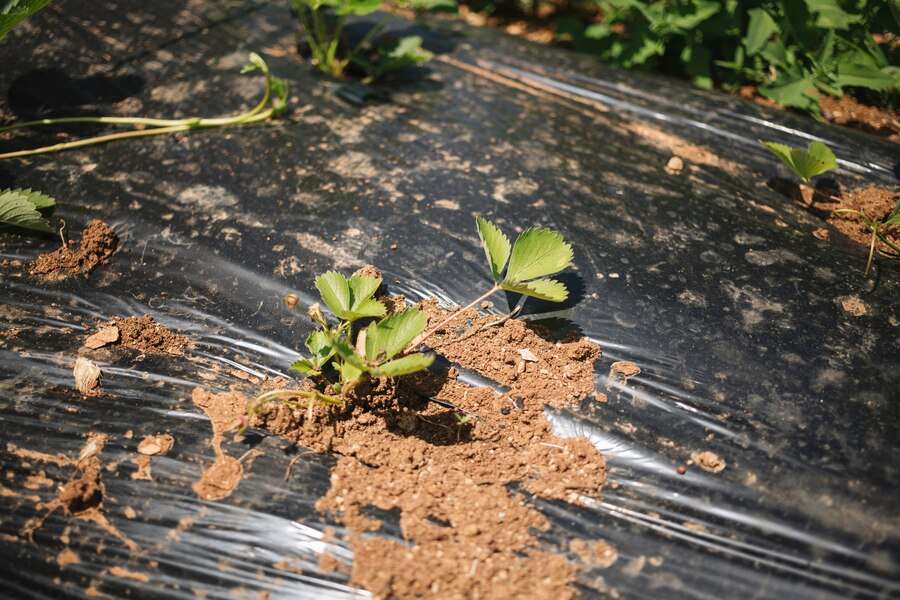
4. Mulching: Preserving Soil Moisture
Mulching involves covering the soil with organic or plastic materials to retain moisture.
- Advantages:
- Reduces evaporation from the soil surface.
- Suppresses weed growth, saving water.
- Usage: Ideal for vegetable and fruit crops.
- Local Practices: Farmers in Nizamabad and Khammam have successfully adopted mulching techniques.
5. Micro-Irrigation Systems: Precision at Its Best
Micro-irrigation systems include techniques like bubbler irrigation and sub-surface irrigation, providing water directly to the root zone.
- Advantages:
- Saves up to 70% more water compared to traditional methods.
- Reduces fertilizer runoff, enhancing soil health.
- Applications: Best suited for high-value crops like mangoes and cotton.
6. Alternate Furrow Irrigation: A Smart Field Technique
Alternate furrow irrigation involves watering every other furrow in the field, cutting water usage by nearly half without significantly affecting crop growth.
- Advantages:
- Improves water-use efficiency.
- Reduces soil erosion.
- Crops Benefited: Maize, sugarcane, and sunflower.
7. Soil Moisture Sensors: Leveraging Technology
Soil moisture sensors help farmers monitor soil water levels in real-time, enabling precise irrigation scheduling.
- Benefits:
- Avoids over-irrigation, reducing water wastage.
- Enhances crop growth by maintaining optimal moisture levels.
- Usage in Telangana: Increasingly adopted in smart farming practices.
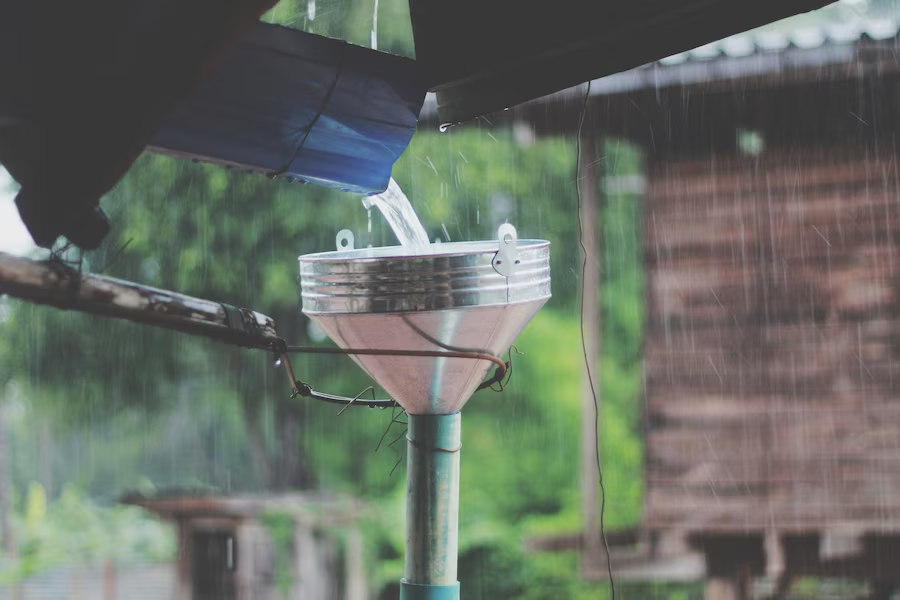
8. Sustainable Groundwater Management
Overuse of groundwater has led to depletion in many parts of Telangana. Sustainable practices like regulated borewell usage and community water-sharing models can ensure equitable water access.
Conclusion
Water-saving irrigation methods are not just about conserving water but also about boosting agricultural productivity and ensuring long-term sustainability for Telangana farmers. By adopting these innovative techniques and leveraging government schemes, farmers can achieve better yields and contribute to water conservation.
For more information on subsidies and assistance, visit Telangana Agriculture Department.

